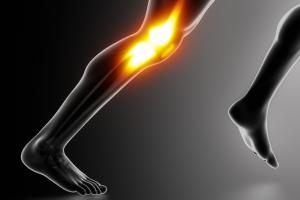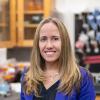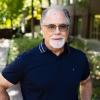Musculoskeletal Disease

The musculoskeletal system is an interconnected network of muscles, tendons, ligaments, cartilage, bones, and other connective tissue that provides overall organism structure and enables movement. At UVa we use a suite of experimental and computational techniques to identify, characterize, and exploit guiding principles of musculoskeletal design to understand and improve therapies for musculoskeletal diseases such as Duchenne Muscular Dystrophy and volumetric muscle loss (VML).
BME Primary Faculty in this Area

Silvia Salinas Blemker, Ph.D.
Silvia Blemker uses experimental and computational models to characterize the relationships between muscle structure, biomechanical properties, biology, and function in order to develop new treatments for musculoskeletal disease

Steven R. Caliari
The Caliari Lab designs, synthesizes, and characterizes new biomaterials to explore the dynamic interplay between cells and their microenvironment, applying these platforms to address fundamental human health challenges in understanding disease and engineering tissues.

George Joseph Christ, Ph.D.
George Joseph Christ, Ph.D., develops basic and translational tissue engineering and regenerative medicine approaches to organ and tissue repair, reconstruction and replacement, with a focus on the musculoskeletal system, vasculature and lower urinary tract. Dr. Christ is an internationally recognized expert in muscle physiology.
BME Joint Faculty Musculoskeletal Diseases Applications

Shawn Russell
Russell's research interests lie in the increased understanding of the mechanisms of human movement
More about Musculoskeletal Disease Research at UVA
Center for Advanced Biomanufacturing
Imagine that someday a lost limb could be replaced or an organ could be grown or built and implanted in the human body. UVA is primed for big leaps, with the goal to eventually fabricate full organs.
